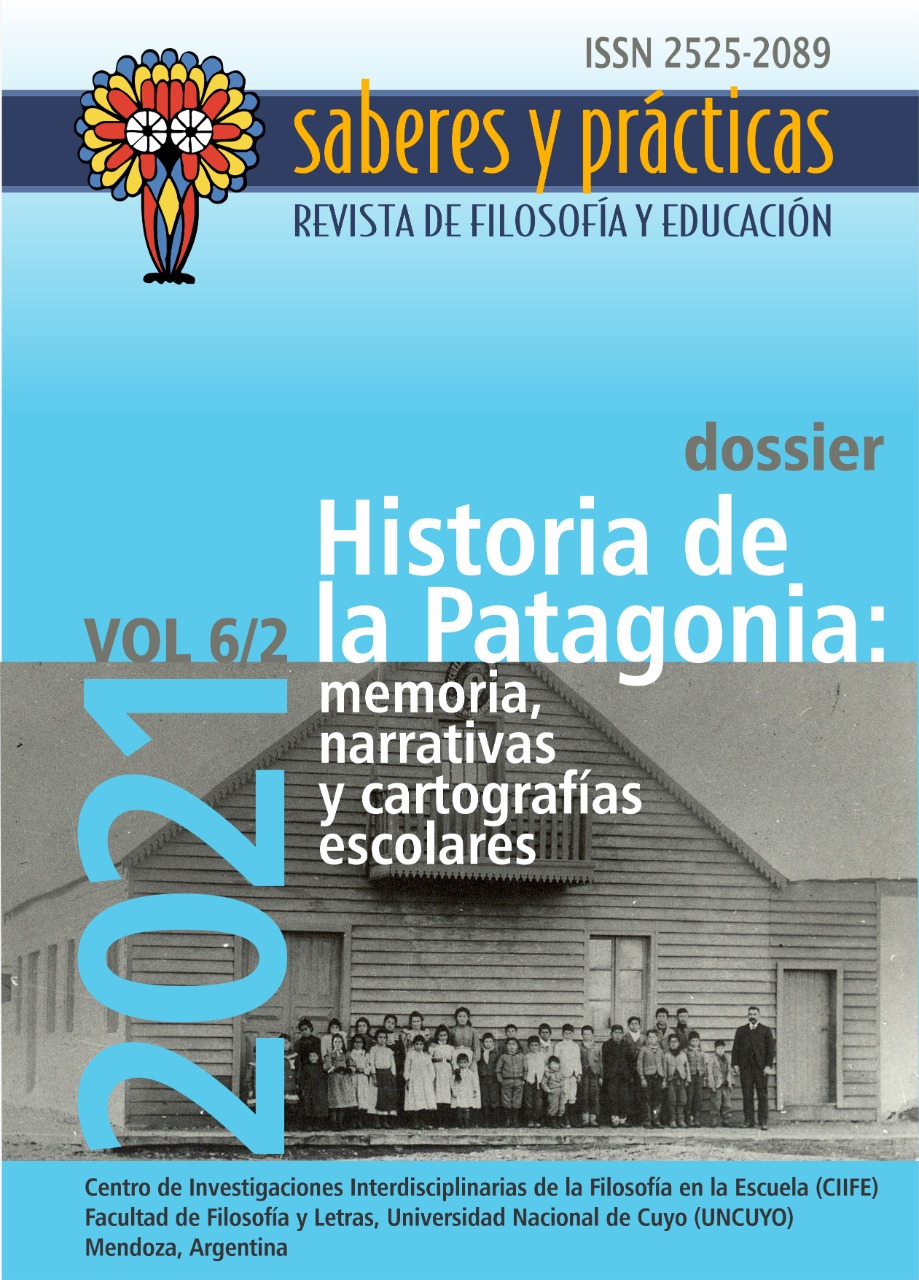Cordoba’s Social and Community Cinema Network in the praxis of Decolonial Pedagogy
DOI:
https://doi.org/10.48162/rev.36.030Keywords:
Córdoba’s community cinema, Dispositive, Decolonial Pedagogy, Coloniality of Power, Artistic non-formal educationAbstract
This article associates the workshop activity carried by a cluster of Cordoba’s community cinema groups to the legitimization dynamics of Decolonial Pedagogy (Walsh, 2013), understanding the later as praxis of a “Dispositive” (Foucault, 1980, [1977]); the Decolonial dispositive. This since its power/knowledge relations are a counter hegemonic practice within the onto-epistemological dynamics of reproduction of what Aníbal Quijano (2000) called “Coloniality of Power” (or the Power dispositive in Foucauldian discourse analysis terms). The essay observes how community cinema follows both the stages proposed by Decolonial Pedagogy as unavoidable steps towards subaltern’s emancipation. 1- To question hegemonic knowledges and identities by adding on the critical self-identification of subaltern historical conditioning circumstances, something community cinema achieves by prompting the learning and understanding of audio-visual language as an apparatus of colonial-capitalist ideology reproduction (I state that they face “coloniality of being” with that). 2- To carry a teleology towards a decolonized life, an aim community cinema attains by aiding subaltern’s technological appropriation to produce meaning throughout their films’ messages as well as through their “Other” forms of production’s social relations (I claim they face “coloniality of knowledge” with that).
Downloads
References
Althusser, L. (1970). Ideología y aparatos ideológicos de Estado. Nueva Visión.
Augustowsky, G. (2017). La creación audiovisual en la infancia. De espectadores a productores. Paidós.
Barnes, C. y Quintar, A. (2016). Democratización de la producción audiovisual. Las nuevas tecnologías como soporte para el desarrollo de experiencias alternativas, Actas publicadas de las IX Jornadas de Sociología. Universidad Nacional de La Plata.
Baudry, J-L. (1974). Ideological effects of the basic cinematographic apparatus, Film Quarterly, 28(2), 39- 47.
Bourdieu, P. (1977). Outline of a Theory of Practice (Vol. 16). Cambridge University Press.
Bourdieu, P. (1984). Distinction: a social critique of the judgement of taste. Routledge.
Castro-Gómez, S. (2000). Ciencias sociales, violencia epistémica y el problema de la invención del otro. En Edgardo Lander (Comp.), La colonialidad del saber: eurocentrismo y ciencias sociales. Perspectivas latinoamericanas (pp. 145-161). CLACSO.
Clifford, J. and Marcus, G. (Eds.). (1986). Writing Culture: The Poetics and Politics of Ethnography. University of California Press.
Comolli J-L, & Narboni, P. (1971). Cinema/ldeology/Criticism. Screen, Volume 12, Issue 1, 27–38.
Deleuze, G. y Guattari, F. (1997). Mil Mesetas. Capitalismo y esquizofrenia. Pre-Textos.
De Oto, A. & Catelli, L. (2018). Sobre colonialismo Interno y Subjetividad. Notas para un debate. Tabula Rasa, (28), 229-255.
Foucault, M. (1970). The order of things. U.K., Pantheon Books.
Foucault, M. (1980). The Confessions of the Flesh [1977] (interview). En Colin Gordon (Ed. and Trans.), Power Knowledge: Selected Interviews and Other Writings. Pantheon Books.
Gramsci, A. (1971). Selections from the prison notebooks [1929-1935]. Lawrence and Wishart.
Grosfoguel, R. (2006). La descolonización de la economía política y los estudios postcoloniales: transmodernidad, pensamiento fronterizo y colonialidad global. Tabula rasa, (4), 17-46.
Grosman, C. (2020). Poiesis del cine latinoamericano frente a los aplazamientos de la aporia de emancipación postcolonial. En Alejandro de Oto (comp.), Ejercicios sobre los postergado. Escritos Poscoloniales. (pp. 245-270). Qellqasqa.
Grosman, C. y Vidal, M.E. (2020). Universidad/ Cine comunitario cordobés: dialéctica hacia la legitimación de saberes otros. Libro de Actas de ENACOM Encuentro Nacional de Carreras de Comunicación. Facultad de Ciencias de la Comunicación. Editorial de la Universidad Nacional de Córdoba. https://fcc.unc.edu.ar/sites/default/files/archivos/enacom_2019_final_compressed.pdf
Hall, S. (2003). Cultural Studies and the Centre: Some Problematics and Problems. En Hall, S., Hobson, D., Lowe, A., & Willis, P. (Eds.), Culture, media, language: working papers in cultural studies, 1972-79. (pp. 12-45). Routledge.
Hall, S., Tonny Jefferson et al. (1993). Subcultures, cultures and class. En Resistance through rituals: Youth subcultures in post-war Britain. (pp. 9-74). Psychology Press.
Harvey, D. (1998). La condición de la posmodernidad. Investigación sobre los orígenes del cambio cultural. Amorrortu.
Jameson, F. (1981). The Political Unconscious: Narrative as a Socially Symbolic Act. Cornell University.
Lander, E. (1997). Modernidad, colonialidad y postmodernidad. Estudios latinoamericanos, (8), 31-46. http://revistas.unam.mx/index.php/rel/article/view/70462/62242
Maldonado-Torres, N. (2007). Sobre la colonialidad del ser: contribuciones al desarrollo de un concepto. En Santiago Castro-Gómez & Ramón Grosfoguel (Eds.), El giro decolonial. Reflexiones para una diversidad epistémica más allá del capitalismo global (pp. 127-167). Siglo del Hombre Editores.
Metz, C. (1979 [1977]). Psicoanálisis y cine. El significante imaginario. Gustavo Gili.
Mignolo, W. (2003). Historias locales - diseños globales: colonialidad, conocimientos subalternos y pensamiento fronterizo. Akal.
Quijano, A. (2000). Colonialidad del poder, eurocentrismo y América Latina. En Edgardo Lander (Comp.). La Colonialidad del saber: Eurocentrismo y Ciencias Sociales. Perspectivas Latinoamericanas (pp. 246-276.). CLACSO.
Walsh, C. (2005a). (Re)pensamiento crítico y (de)colonialidad. En Catherine Walsh (Ed.) Pensamiento crítico y matriz (de)colonial: Reflexiones latinoamericanas (pp. 13-36). Ediciones Abya-Yala.
Walsh, C. (2005b). Interculturalidad, conocimientos y decolonialidad. Signo y pensamiento, 24(46), 39-50.
Walsh, C. (2013). Lo pedagógico y lo decolonial: Entretejiendo caminos. En Catherine Walsh (Ed.), Pedagogías decoloniales Tomo I. Prácticas insurgentes de resistir, (re)existir y (re)vivir (pp. 23-68). Ediciones Abya-Yala.
Published
How to Cite
Issue
Section
License
License
This work is licensed under a Creative Commons Attribution-NonCommercial-ShareAlike 2.5 Argentina License.









